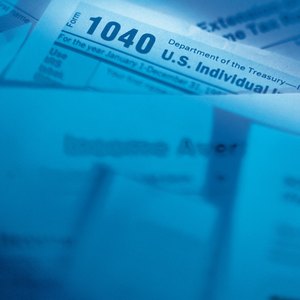
When you file your tax return, you must disclose all of the taxable income you received during the year. If you don't include all of your income, calculations of the tax you owe will not be accurate. Furthermore, if the Internal Revenue Service finds that you haven't claimed all the income you earned, the agency may impose a penalty.
Unclaimed Income
The IRS receives reports of most earned income through W-2s filed by employers and 1099s filed by individuals or organizations that make payments to independent contractors. The IRS compares these documents to the tax returns filed by the recipients of the reported income. If the IRS discovers you have omitted some of your income from your tax return, it may select your return for an audit, and you must amend the return accordingly.
Tip Income
If you receive tip income during the year, you must report your tips to your employer each month, and you must also report your total tips on your income tax return. Likewise, your employer must report estimates of your tip income to the IRS. If tips are common in your profession, the IRS may select your return for an audit if your reported tip income seems inadequate.
Interest
Omitting income from your tax return usually results in more tax owed. If you discover you have failed to include income on your tax return and you pay the extra tax you owe before the payment due date, you won't owe any interest. However, if you pay the extra tax after the due date, you will owe interest equal to 0.5 percent of the unpaid tax for every month the payment is late. Your total interest will not exceed 25 percent of the unpaid tax.
Penalties
If the IRS suspects that the omission of income from your return was the result of negligence, you may owe an accuracy-related penalty in addition to any interest that accrues. Accuracy-related penalties are equal to 20 percent of the tax you failed to pay. However, if you can show that the omission of income was an honest mistake, the IRS will often waive this penalty. If the IRS determines that you knew your return was inaccurate when you filed it, you may face a larger penalty for fraud that's equal to 75 percent of your underpayment.
Considerations
If you have accidentally omitted income from your tax return, file an amended return as soon as possible to avoid a formal audit. You should also pay any extra tax you owe as soon as you can to reduce or eliminate any interest you would owe. If you can show a good reason for paying your extra tax late, such as severe hardship, the IRS may waive interest and penalties.
References
Writer Bio
Amanda McMullen is a freelancer who has been writing professionally since 2010. She holds a bachelor's degree in mathematics and statistics and a second bachelor's degree in integrated mathematics education.

